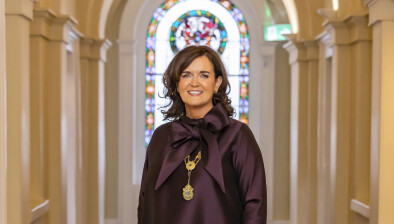High Court: Questions on equivalence and charges for ‘time spent’ answering environmental information requests to be referred to CJEU

The High Court has indicated that it will refer questions concerning the principle of equivalence and the legality of charges for time spent by public authority staff in answering environmental information requests to the CJEU.
Delivering judgment for the High Court, Mr Justice Richard Humphreys indicated that two identified questions would in principle be referred to the CJEU under Article 267 of the Treaty on the Functioning of the European Union, in accordance with a judgment for reference to be issued separately.
Background
On 12 July 2023, the appellant company made a request to Coillte for access to environmental information. The information sought comprised of correspondence dating from August 2022 between Coillte and Soil Association Certification in connection with the certification audit undertaken by that body of Coillte in and around May 2022.
No response was forthcoming, leading the appellant to request an internal review on 11 August 2023.
Coillte issued an internal review decision on 11 September 2023, granting the request subject to payment of a €30 fee to Coillte for 1.5 hours spent on search, retrieval and compilation of the material, which was supplied to the appellant in electronic form.
Having paid the fee, the appellant appealed the fee to the respondent on 22 October 2023 on the basis that the completion of the request should not have taken 1.5 hours, that the charges covered information which was already in the public domain, and that the charges were for indirect cost or “time spent”, which were precluded having regard to the findings and recommendations of the Aarhus Convention Compliance Committee (ACCC) in case ACCC/C/2017/147 (the Moldova case).
Coillte admitted that it should not have charged for the supply of publicly-available information and indicated that it would reduce the charge to €15. The respondent’s decision was delivered on 10 March 2025.
The appellant appealed to the High Court, on grounds that the respondent erred in finding that the €15 fee for the supply of environmental information was reasonable under Regulation 15(1) of the European Communities (Access to Information on the Environment) Regulations 2007 to 2014 (AIE Regulations) and Article 5(2) of Directive 2002/4/EC on public access to environmental information (AIE directive), and erred in finding that it was lawful and/or reasonable for Coillte to charge for indirect costs including the time taken by it to search for, retrieve and collate the requested information.
The parties’ positions
As to the first ground, the appellant relied upon the principle of equivalence, arguing that it is unlawful to charge a fee of less than €101 for the supply of environmental information under the AIE Regulations where such a fee is not chargeable under the Freedom of Information Act 2014 (FOI Act), a similar national law procedure to the AIE Regulations, and/or where under national law an applicant can apply for a review to the Information Commissioner which would be bound to disallow a charge of less than €101, whereas the respondent is not so-bound.
The respondent and the notice parties denied that the principle of equivalence applied, contending inter alia that the FOI and AIE fee regimes were conceptually different, that the equivalence point had not been advanced, argued or determined before the respondent and so could not now be raised on appeal to the High Court, and that equivalence is only engaged where EU law leaves it to Member States to provide remedies for the violation of directly effective rights.
As to the second ground, the appellant contended inter alia that Article 4(8) of the United Nations Economic Commission for Europe Convention on Access to Information, Public Participation in Decision-Making and Access to Justice in Environmental Matters done at Aarhus on 25 June 1998 (Aarhus Convention) prohibits the charging of indirect costs for the supply of environmental information.
The appellant further argued that the scope of the charges within Article 4(8) was clarified in the Moldova case and endorsed by the Meeting of the Parties (MOP) in 2021, and that this interpretation, rather than the earlier judgment of the European Court of Justice (CJEU) in East Sussex C-71/14, ought to have been applied by the respondent having regard to Article 31(3)(a) of the Vienna Convention on the Law of Treaties.
The respondent and notice parties argued inter alia that the respondent is bound to follow the judgments of the CJEU, that Article 4(8) of the Aarhus Convention does not have direct effect and does not expressly prohibit the charging of indirect costs for the supply of environmental information.
The High Court
Having considered the relevant legislation, conventions, applicable caselaw and the parties’ positions, Mr Justice Humphreys considered it necessary to make a reference to the CJEU concerning whether, in light of the Moldova case, Article 5(2) of Directive 2003/4 and/or Article 4(8) of the Aarhus Convention have the effect that a charge for supplying a certain environmental information may not include costs for time spent by public authority staff in answering individual requests for information.
The judge further found that notwithstanding the appellant’s failure to raise the principle of equivalence before the respondent, its case was exceptional where inter alia equivalence was not especially suited to have been addressed by the respondent, where the respondent expressly stated that its decision would have been same had the point been raised, where the respondent was legitimately of the view that the point would have to be addressed proximately in any event and where the respondent was of the view that the interests of justice require the point to be addressed.
As to whether the principle of equivalence precluded the charging of the fee by virtue of a comparison between Regulation 15(1) of the AIE Regulations and Article 5(2) of Directive 2003/4/EC and the FOI Act, Mr Justice Humphreys deemed it appropriate to refer a further detailed question to the CJEU on that issue, considering factors such as the differences in the purpose of the domestic and EU legislation, the variations between the transposing and domestic legislation in certain points of detail and procedure, and the fact that the particular body from whom information was requested by way of EU request in the procedure the subject of the proceedings before the court was not itself liable to be subject to a domestic request.
Conclusion
Accordingly, the High Court ordered inter alia that the identified questions be in principle referred to the CJEU.
Save Leitrim Environmental and Biodiversity CLG v Commissioner for Environmental Information [2025] IEHC 556











